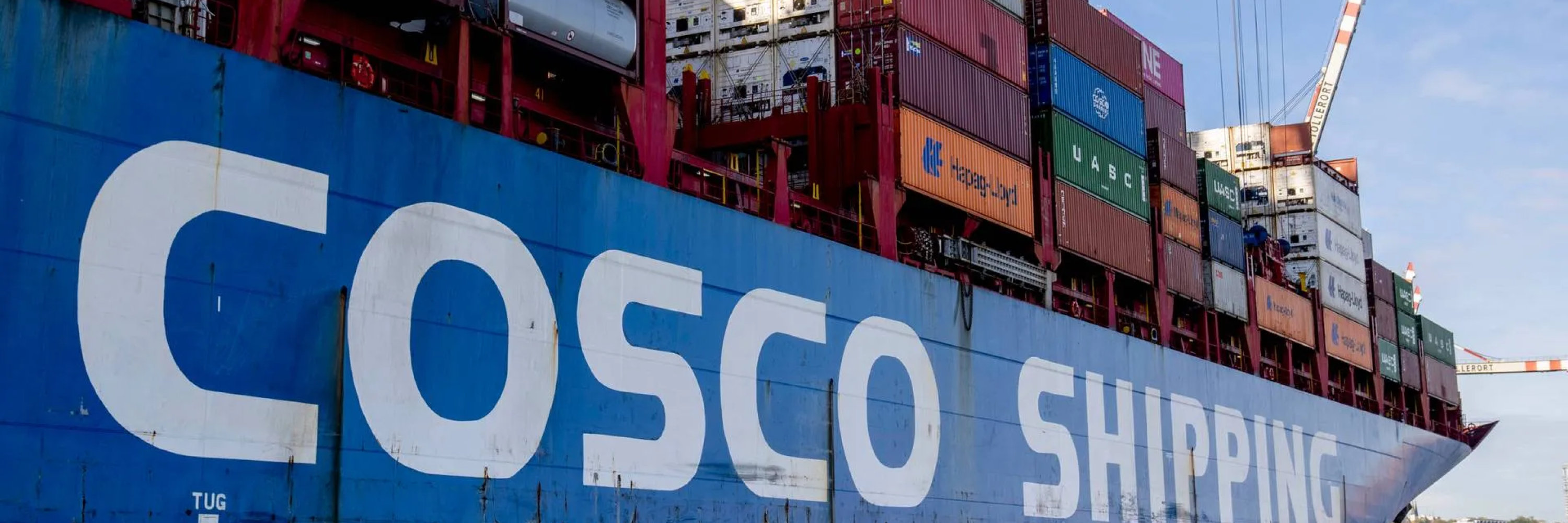
Pacific Basin Shipping Ltd
HKEX:2343

Profitability Summary
Pacific Basin Shipping Ltd's profitability score is hidden . We take all the information about a company's profitability (such as its margins, capital efficiency, free cash flow generating ability, and more) and consolidate it into one single number - the profitability score. The higher the profitability score, the more profitable the company is.
Profitability Score
We take all the information about a company's profitability (such as its margins, capital efficiency, free cash flow generating ability, and more) and consolidate it into one single number - the profitability score. The higher the profitability score, the more profitable the company is.
We take all the information about a company's profitability (such as its margins, capital efficiency, free cash flow generating ability, and more) and consolidate it into one single number - the profitability score. The higher the profitability score, the more profitable the company is.
Profitability Score
Margins
Earnings Waterfall
Pacific Basin Shipping Ltd

Margins Comparison
Pacific Basin Shipping Ltd Competitors

| Country | Company | Market Cap |
Gross Margin |
Operating Margin |
Net Margin |
||
|---|---|---|---|---|---|---|---|
| HK |

|
Pacific Basin Shipping Ltd
HKEX:2343
|
17.5B HKD |
Loading...
|
Loading...
|
Loading...
|
|
| DK |

|
AP Moeller - Maersk A/S
CSE:MAERSK B
|
230.3B DKK |
Loading...
|
Loading...
|
Loading...
|
|
| CN |

|
COSCO Shipping Holdings Co Ltd
SSE:601919
|
221.7B CNY |
Loading...
|
Loading...
|
Loading...
|
|
| CH |

|
Kuehne und Nagel International AG
SIX:KNIN
|
21B CHF |
Loading...
|
Loading...
|
Loading...
|
|
| DE |

|
Hapag Lloyd AG
XETRA:HLAG
|
21.6B EUR |
Loading...
|
Loading...
|
Loading...
|
|
| KR |
H
|
HMM Co Ltd
KRX:011200
|
21.8T KRW |
Loading...
|
Loading...
|
Loading...
|
|
| JP |

|
Nippon Yusen KK
TSE:9101
|
2.1T JPY |
Loading...
|
Loading...
|
Loading...
|
|
| TW |

|
Evergreen Marine Corp Taiwan Ltd
TWSE:2603
|
402.7B TWD |
Loading...
|
Loading...
|
Loading...
|
|
| JP |

|
Mitsui O.S.K. Lines Ltd
TSE:9104
|
1.9T JPY |
Loading...
|
Loading...
|
Loading...
|
|
| HK |

|
Orient Overseas (International) Ltd
HKEX:316
|
93.1B HKD |
Loading...
|
Loading...
|
Loading...
|
|
| HK |

|
SITC International Holdings Co Ltd
HKEX:1308
|
86.2B HKD |
Loading...
|
Loading...
|
Loading...
|
Return on Capital
Return on Capital Comparison
Pacific Basin Shipping Ltd Competitors

| Country | Company | Market Cap | ROE | ROA | ROCE | ROIC | ||
|---|---|---|---|---|---|---|---|---|
| HK |

|
Pacific Basin Shipping Ltd
HKEX:2343
|
17.5B HKD |
Loading...
|
Loading...
|
Loading...
|
Loading...
|
|
| DK |

|
AP Moeller - Maersk A/S
CSE:MAERSK B
|
230.3B DKK |
Loading...
|
Loading...
|
Loading...
|
Loading...
|
|
| CN |

|
COSCO Shipping Holdings Co Ltd
SSE:601919
|
221.7B CNY |
Loading...
|
Loading...
|
Loading...
|
Loading...
|
|
| CH |

|
Kuehne und Nagel International AG
SIX:KNIN
|
21B CHF |
Loading...
|
Loading...
|
Loading...
|
Loading...
|
|
| DE |

|
Hapag Lloyd AG
XETRA:HLAG
|
21.6B EUR |
Loading...
|
Loading...
|
Loading...
|
Loading...
|
|
| KR |
H
|
HMM Co Ltd
KRX:011200
|
21.8T KRW |
Loading...
|
Loading...
|
Loading...
|
Loading...
|
|
| JP |

|
Nippon Yusen KK
TSE:9101
|
2.1T JPY |
Loading...
|
Loading...
|
Loading...
|
Loading...
|
|
| TW |

|
Evergreen Marine Corp Taiwan Ltd
TWSE:2603
|
402.7B TWD |
Loading...
|
Loading...
|
Loading...
|
Loading...
|
|
| JP |

|
Mitsui O.S.K. Lines Ltd
TSE:9104
|
1.9T JPY |
Loading...
|
Loading...
|
Loading...
|
Loading...
|
|
| HK |

|
Orient Overseas (International) Ltd
HKEX:316
|
93.1B HKD |
Loading...
|
Loading...
|
Loading...
|
Loading...
|
|
| HK |

|
SITC International Holdings Co Ltd
HKEX:1308
|
86.2B HKD |
Loading...
|
Loading...
|
Loading...
|
Loading...
|

